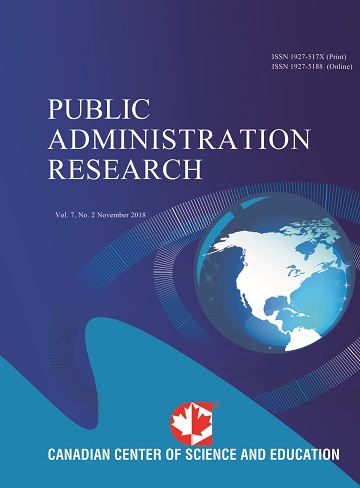Federalism, Decentralization, and Health Care Policy Reform in India
- Divya Pahwa
- Daniel Beland
Abstract
This article explores how the Indian federal structure impacts health care. India has a history of central planningand concentration of power at the federal level. This concentration of power has left state and local levels of
government in a subordinate position. Such a situation has distorted incentives, and a by-product of this has been
a rather disorganized health care system. Disorganization and fiscal limitations have become major obstacles to
large-scale reform of India’s health care system. However, reform is necessary. As argued, a stronger, more
decentralized, and better regulated public health care system should improve human welfare in India, while
fostering the development of a stronger sense of national identity derived from shared, universal social
citizenship.
- Full Text:
 PDF
PDF
- DOI:10.5539/par.v2n1p1
Journal Metrics
h-index (2017): 7
i10-index (2017): 6
h5-index (2017): 7
h5-median (2017): 13
Index
- COPAC
- CrossRef
- DTU Library
- EBSCOhost
- EuroPub Database
- Excellence in Research for Australia (ERA)
- Genamics JournalSeek
- Ghent University Library
- Google Scholar
- Harvard Library
- Infotrieve
- Jisc Library Hub Discover
- LOCKSS
- Mir@bel
- Norwegian Centre for Research Data (NSD)
- Open J-Gate
- PKP Open Archives Harvester
- Publons
- ROAD
- Scilit
- SHERPA/RoMEO
- Stanford Libraries
- Ulrich's
- UniCat
- Universe Digital Library
- UoS Library
- WorldCat
Contact
- Gabriel TaiEditorial Assistant
- par@ccsenet.org
